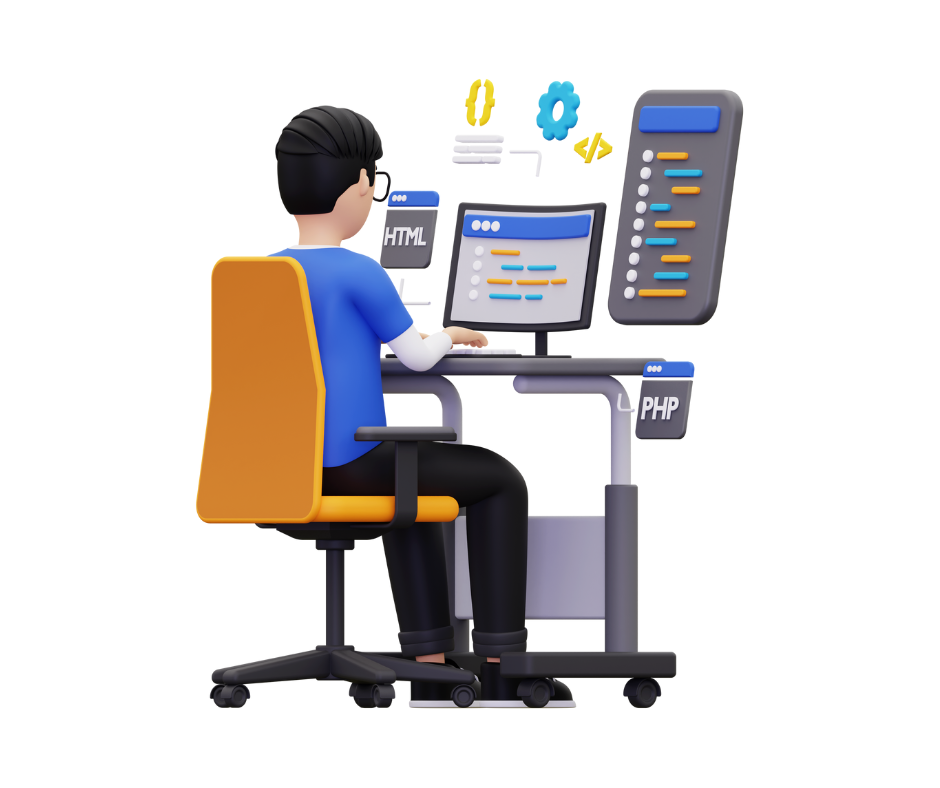What is Full Stack Java Development?
Full stack Java development is a powerful and unique way to create software applications that utilize multiple technologies. This includes frontend and backend development, as well as database management, allowing for the efficient and quick creation of web, mobile, and enterprise applications.
Compared to traditional software development methods, full stack Java development offers many advantages such as modularity, speedy development, scalability, and flexibility. These benefits make it possible to handle large projects with minimal resources and to use Java in a variety of situations.
The future of full stack Java development is promising as it utilizes new technologies such as AI and machine learning for more advanced and efficient development processes. By utilizing AI-driven tools like predictive analytics and natural language processing, developers can create smarter and more user-friendly applications, ultimately helping them achieve their goals quickly and efficiently while saving costs.
Full stack Java development also promotes creativity and innovation by allowing developers to generate new ideas swiftly without spending too much time on implementation details or bug fixes. By leveraging the technology’s many benefits, developers can increase productivity and achieve successful outcomes for their projects.
The Benefits and Challenges of Java Full Stack Development
The software development industry is evolving rapidly and becoming more complex. Java Full Stack development, which specifically uses Java programming language, can be used to create powerful applications with multiple layers such as web and mobile applications, databases, servers, and more.
Java Full Stack provides numerous benefits for software developers. It allows developers to use different libraries and frameworks to build powerful applications quickly. Additionally, it is open-source, meaning that using it has no licensing costs. Furthermore, since it uses a single language – Java – developers do not have to learn multiple languages when working on projects. Kelly Technologies is one of the top-notch training institutes in Hyderabad that offers comprehensive Java Full Stack Developer Course in Hyderabad.
To use Java Full Stack Development effectively, you will need certain skills and knowledge related to this technology such as database design principles, object-oriented programming concepts, and experience working with different libraries such as Spring Boot or Hibernate Framework for backend development tasks, frontend libraries like ReactJS or AngularJS for creating user interfaces, and cloud infrastructure tools like AWS or Google Cloud Platform for deploying applications on cloud platforms.
Current trends in the software development industry related to Java Full Stack Development include Microservices Architecture, Serverless Computing, and DevOps practices. Although there are many advantages of using Java Full Stack Development in your projects, you should also consider some challenges such as the complexity of deploying applications built using this framework on production environments and debugging errors with all layers involved in the application’s architecture.
Fortunately, there are resources available online such as tutorials on YouTube, Udemy courses, and online forums that can help you get up-to-speed quickly if you are just starting out learning this technology from scratch. Overall, the potential of Java Full Stack Technologies far outweighs any obstacles one might encounter during the process of building modern digital products, making it a worthwhile investment for both individual developers and teams looking to create robust, scalable solutions without sacrificing quality performance along the way. Are you looking for the best Java Full Stack Developer Course in Hyderabad? Look no further than Kelly Technologies!
The Benefits of Java in Software Development
Java is one of the most popular languages in software development due to scalability, security, platform independence, and high performance. It offers flexibility and ease in developing complex software programs for web applications and mobile apps.
By combining a back-end server, front-end user interface, and a database into one unified system, the Java Full Stack provides an efficient and robust application for end-to-end development. It makes coding more efficient by offering all necessary components in one package, and it is based on open-source technology with access to ongoing bug fixes and support from active online communities.
However, challenges may exist in teams unfamiliar with this technology, understanding how the different aspects fit together, and extensive testing required when multiple programs interact within the framework. Ensure team members understand how all pieces fit together, test components separately before integrating them, and provide access to resources when needed.
If you are interested in learning more about Java Full Stack, there are excellent resources such as Oracle tutorials, The Complete Guide to Learning Spring Boot, and Introduction to Web Development with Spring Boot.
How Java Enhances Full Stack Applications in the Future
Java is a powerful tool that can enhance the full stack applications of tomorrow, offering multiple benefits such as improved scalability and increased flexibility. With advancements in machine learning and cloud computing, Java full stack developers will have access to powerful technologies that can help create more efficient applications in the future.
Data security is also crucial in developing Java full stack applications as businesses become more reliant on technology, and their data must remain secure. Developers need to ensure that any application they develop is well-protected against potential threats and breaches of security.
User experience is another key consideration for developers creating full stack applications with Java. Optimizing user experience can be achieved through advanced technologies such as artificial intelligence (AI) and virtual reality (VR). By using AI, you can predict user needs based on their past behavior and provide relevant information accordingly, making your application easier to use. With VR, you can provide users with a fully immersive experience while using your application, making it more engaging and enjoyable for them.
Finally, Java full stack development offers plenty of growth opportunities in the software development industry today, from new job roles such as data scientists or cloud engineers, to senior positions such as director of software engineering or CTOs at companies like Google or Microsoft. These roles often come with great salaries, making them even more attractive prospects for those looking for a career change or starting out on their journey into software development. So, if you’re interested in exploring this field further, start learning about all things related to Java Full Stack today!
What Is The Future of Java Full Stack Development?
The future of Java Full Stack development is exciting, with the popularity of this software industry growing exponentially. It offers various benefits, including improved efficiency, cost savings, and reduced time and effort. As a result, the demand for skilled Java Full Stack developers is rapidly increasing. A good understanding of both front-end and back-end technologies is essential for aspiring developers interested in this field. Recent trends indicate that more businesses are utilizing modern technologies like DevOps, cloud computing, containerization, microservices architecture, and machine learning algorithms with Java Full Stack development at its core. This results in improved efficiency, accuracy, and quality of work, while ensuring compliance with regulations and policies across multiple business sectors. Moreover, a deep understanding of data analysis can provide better insights into decision-making and open up new opportunities for growth or expansion. Successful full stack java developers require a combination of technical knowledge, hands-on experiences with different tools and frameworks, and soft skills like communication and problem-solving abilities. It’s an attractive field for passionate software engineers who want to stay ahead in the ever-evolving tech landscape. Combining all these advantages, we can confidently say that the future looks bright for those interested in pursuing a career path in full stack java development. This article recifest is thought to have clarified your doubts.




